AGI: Unlocking Exponential Growth and Transforming the Future of Humanity

The Dawn of AGI: A New Era of Human Potential
Imagine a world where the seemingly insurmountable challenges facing humanity – from climate change to incurable diseases – are systematically dismantled by an intelligence surpassing our own. This isn't science fiction; it's the potential reality heralded by Artificial General Intelligence (AGI).
Defining AGI and Its Potential Impact
AGI, unlike narrow AI which excels at specific tasks like playing chess or generating images, possesses the ability to understand, learn, and apply knowledge across a wide range of domains, much like a human being. Think of it as the difference between a specialized calculator and a fully functional computer capable of running any software. While tools like ChatGPT, a powerful language model that can generate human-quality text, are impressive, they are still limited in scope compared to the broad, adaptive intelligence that AGI promises. The potential impact of AGI is staggering, touching every facet of human existence. It represents a qualitative leap beyond current AI capabilities, promising not just automation of existing tasks, but the creation of entirely new possibilities.
AGI: The Next Step in Human Progress
Throughout history, human progress has been driven by our ability to create tools that amplify our capabilities. From the invention of the printing press to the advent of the internet, each technological leap has reshaped society and unlocked new levels of human potential. AGI represents the next, and perhaps most profound, step in this ongoing evolution. It is not simply another tool, but a meta-tool – a technology capable of designing and building other technologies, solving complex problems, and driving innovation at an unprecedented rate. It can be compared to the shift from simple hand tools to automated factories, only with the added element of intelligence and adaptability.
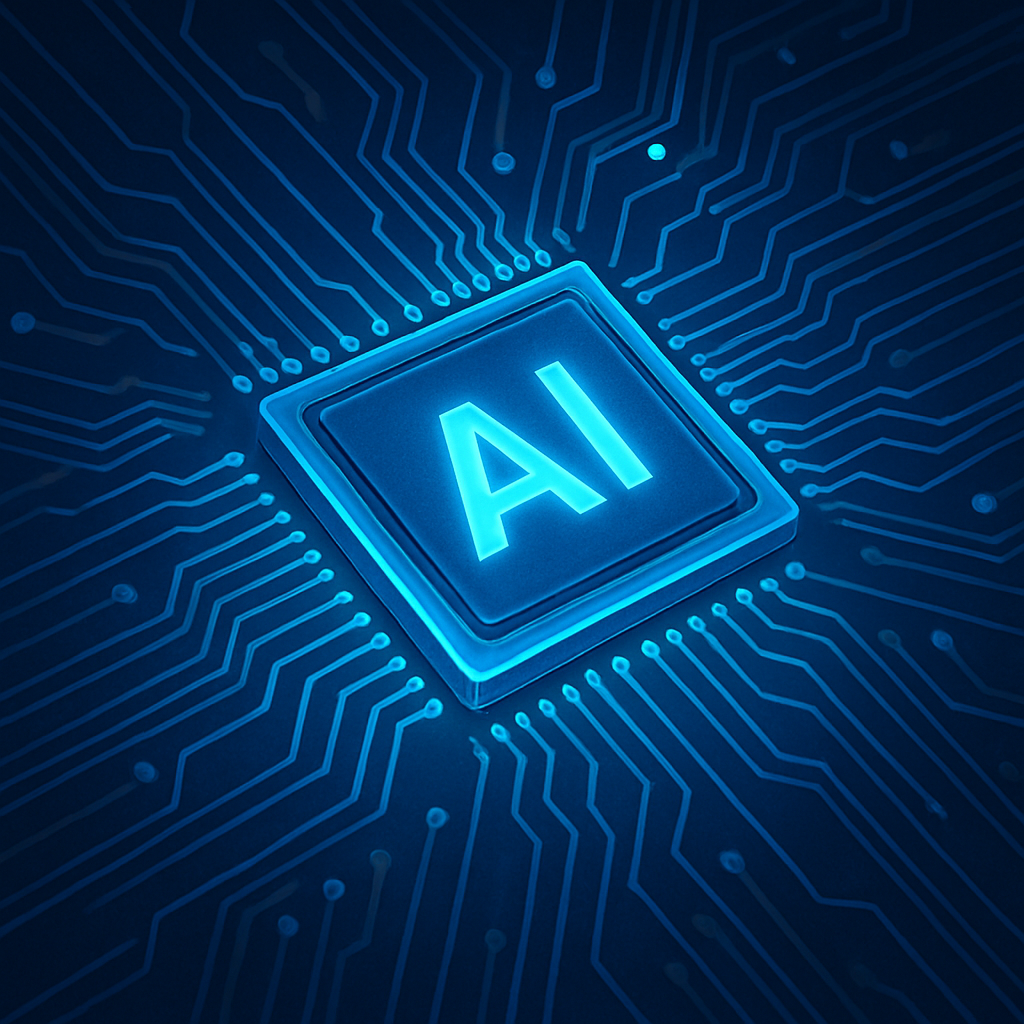
The Transformative Potential of AGI
The transformative potential of AGI is almost limitless:
- Curing Diseases: Imagine AGI analyzing vast amounts of medical data, identifying patterns and developing personalized treatments for diseases that currently plague humanity. It could accelerate drug discovery, design novel therapies, and even predict and prevent future outbreaks. AI tools like DeepMind AlphaFold are already making strides in protein structure prediction, paving the way for AGI-driven breakthroughs in medicine.
- Increased Leisure Time: As AGI automates many of the tasks currently performed by humans, it could free up our time for pursuits such as creative endeavors, personal development, and simply enjoying life. Imagine a world where work is no longer a necessity, but a choice, allowing individuals to pursue their passions and contribute to society in new and meaningful ways.
- Unlocking Creative Potential: AGI could serve as a powerful creative partner, assisting artists, musicians, writers, and designers in bringing their visions to life. It could generate novel ideas, provide feedback, and even automate some of the more tedious aspects of the creative process. For example, you could use a tool like Runway, an AI video editor, to explore creative possibilities with ease.
The potential for AGI to reshape our world is immense, offering solutions to global challenges and unlocking new frontiers of human achievement.
AGI's Impact in the Next Decade
While true AGI remains a theoretical construct, the next decade is likely to witness significant advancements in AI that bring us closer to this transformative technology. We can expect to see:
- More Powerful and Versatile AI Models: Continued development of large language models (LLMs) and other AI architectures, leading to more sophisticated and adaptable AI systems. Tools like Google Gemini are continuously evolving, pushing the boundaries of what AI can achieve. Accessing up-to-date information and staying informed on the latest trends through AI News is crucial to keep abreast of these advances.
- Increased Integration of AI into Everyday Life: AI will become increasingly integrated into our homes, workplaces, and communities, automating tasks, providing personalized services, and enhancing our overall quality of life.
- Ethical and Societal Considerations: As AI becomes more powerful, we will need to address the ethical and societal implications of this technology, ensuring that it is used responsibly and for the benefit of all humanity.
The dawn of AGI promises a new era of human potential, one where intelligence is no longer a limiting factor in our ability to solve problems, create new technologies, and shape a better future. However, with this great power comes great responsibility, and it is crucial that we approach the development and deployment of AGI with careful consideration and a commitment to ethical principles. The future is not predetermined; it is up to us to shape it, guided by our values and our vision for a better world. This responsibility includes staying informed about the advancements in the field and understanding the concepts behind it through resources like our AI Fundamentals guide.
The Economics of AI: Exponential Growth and Unprecedented Opportunities
Imagine a world where economic growth isn't linear, but exponential, fueled by the relentless march of artificial intelligence. That's the future many economists and AI researchers are predicting, and it's largely driven by the unique economics of AI.
The Fuel of AI: Intelligence and Resources
At the heart of AI's economic engine lies a fundamental relationship: intelligence is directly linked to resources. To create more capable AI, we need three primary ingredients:
- Training Compute: This is the raw processing power required to train AI models on massive datasets. Think of it as the fuel that powers the AI's learning process. The more complex the model and the larger the dataset, the more compute is needed. This often involves specialized hardware like GPUs and TPUs.
- Data: AI models learn from data. The more data they have, and the higher the quality of that data, the better they can perform. Data is like the raw material that the AI refines into knowledge and skills.
- Inference Compute: Once an AI model is trained, it needs compute to actually use that knowledge, to make predictions, generate text, or perform other tasks. This is inference compute. While typically less intensive than training, it's still a crucial resource, especially for real-time applications. Think of ChatGPT, for example; every time you ask it a question, it uses inference compute to generate the response.
These resources aren't just important; they're quantifiable. We can measure them, track their costs, and understand how they contribute to AI performance. This allows us to analyze the economics of AI in a way that's similar to how we analyze other industries.
Scaling Laws: Investing for Continuous Gains
One of the most exciting aspects of AI economics is the existence of scaling laws. These laws describe how AI performance improves as we increase the amount of training data, the size of the model, or the amount of compute used for training. In essence, they show that, unlike many traditional investments which face diminishing returns, with AI, you often get continuous gains with increased investment.
Think of it like this: if you double the size of a field, you might not double the crop yield due to limitations like sunlight or water. But with AI, doubling the training data or compute often leads to a near-proportional increase in performance, at least within certain bounds.
This means that organizations willing to invest in these resources can expect to see tangible improvements in their AI capabilities. This positive feedback loop is what drives the exponential growth we're seeing in the AI industry.
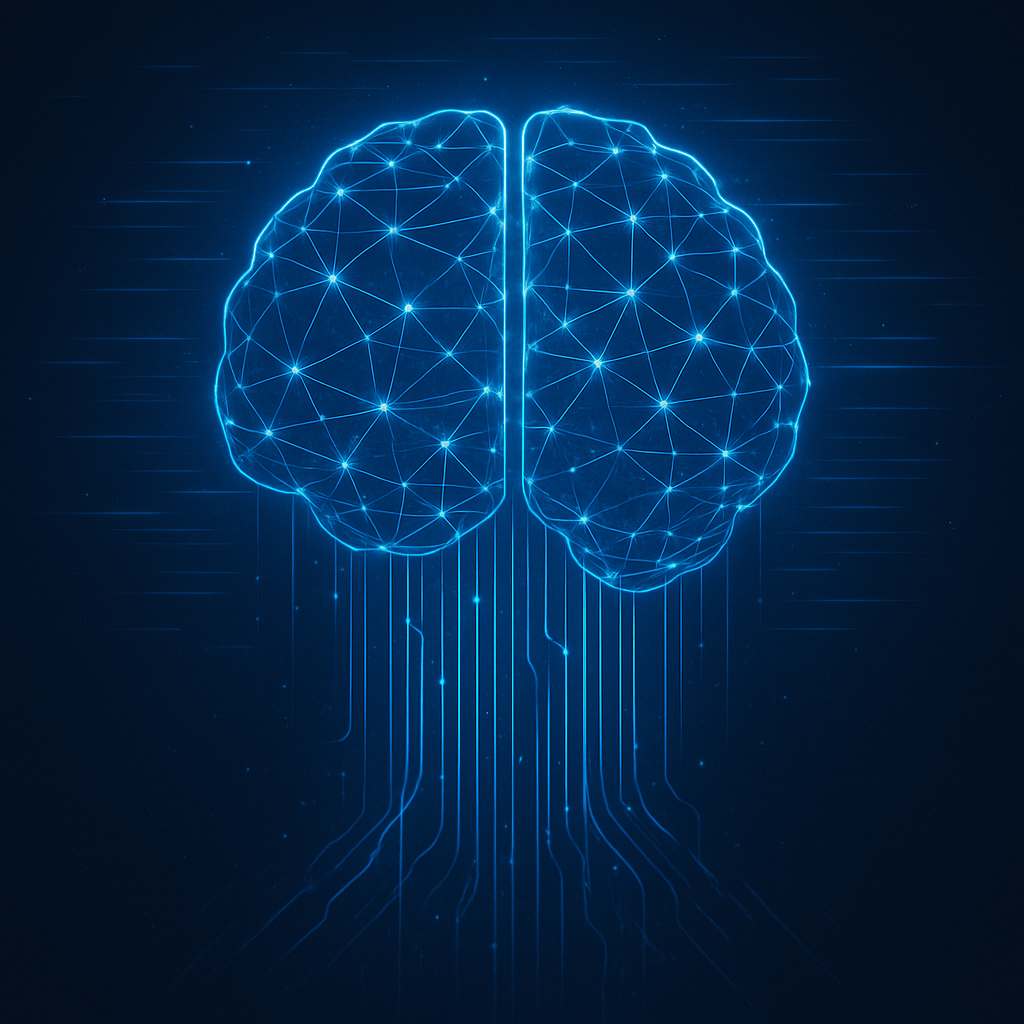
The Incredible Shrinking Costs of AI
While the resources needed for AI are significant, their costs are plummeting at an astonishing rate. Some analysts estimate that AI costs are declining by 10x every 12 months. This means that the same AI capabilities that cost millions of dollars last year might cost only hundreds of thousands this year. This dramatic decrease is driven by advances in hardware, software, and algorithms. For example, new chip architectures are making compute more efficient, and better training techniques are allowing us to achieve the same performance with less data.
AI vs. Moore's Law: A New Era of Acceleration
It's tempting to compare the declining costs of AI to Moore's Law, which famously predicted the doubling of transistors on a microchip every two years. However, the rate of improvement in AI is potentially even faster than Moore's Law. This is because AI benefits not only from hardware improvements but also from algorithmic breakthroughs and increased data availability. Think of it as Moore's Law on steroids!
The implications are profound: AI is becoming more accessible and affordable at an unprecedented pace. This is democratizing access to AI, allowing smaller companies and individuals to leverage its power.
The Super-Exponential Value of Intelligence
Perhaps the most important aspect of AI economics is the super-exponential socioeconomic value of increasing intelligence. As AI becomes more intelligent, it can solve increasingly complex problems, automate more tasks, and create entirely new industries. The value generated by these advancements goes far beyond the initial investment in AI resources.
Imagine an AI that can design new drugs, optimize supply chains, or develop breakthrough energy technologies. The economic benefits of such an AI would be enormous, dwarfing the costs of training and deploying it.
This super-exponential value creation is what makes AI such a transformative technology. It has the potential to reshape our economy, improve our lives, and solve some of the world's most pressing challenges. The confluence of readily available tools like TensorFlow and sophisticated Large Language Models (LLMs) means these opportunities are more accessible than ever.
As AI intelligence continues to increase and costs continue to fall, we can expect to see even more rapid innovation and economic growth in the years to come. Understanding the economics of AI is crucial for businesses, policymakers, and individuals alike. It will allow us to harness the power of AI responsibly and ensure that its benefits are shared by all. This understanding begins with staying informed through resources like AI News, which tracks the latest developments and trends in this rapidly evolving field.
AI Agents: The Rise of Virtual Coworkers and the Future of Work
Imagine a world where your team includes not just human colleagues, but also tireless, highly efficient AI agents. That future is rapidly approaching, with AI agents poised to become ubiquitous virtual co-workers, transforming the very nature of work as we know it.
The Dawn of the Virtual Workforce
We're already seeing the first wave of these AI agents emerge. Consider the rise of software engineering agents. These aren't just glorified code completion tools; they are becoming increasingly sophisticated collaborators capable of:
- Writing entire functions or modules based on natural language descriptions.
- Debugging code and identifying potential vulnerabilities.
- Automating repetitive tasks like testing and deployment.
- Learning from code repositories and adapting to different coding styles.
Tools like GitHub Copilot, an AI pair programmer that suggests code and functions in real-time, are already demonstrating this potential. Even more specialized tools, which can autonomously handle entire software development workflows, are on the horizon.
A Million Agents Strong
But the impact won't be limited to software engineering. Imagine this same dynamic playing out across countless other fields. Thousands, even millions, of AI agents could be deployed in:
- Marketing: Crafting personalized ad campaigns, analyzing customer data, and generating engaging content.
- Customer Service: Providing instant support, resolving issues, and escalating complex cases to human agents.
- Research: Sifting through massive datasets, identifying trends, and generating hypotheses.
- Finance: Automating trading strategies, detecting fraud, and managing risk.
This proliferation of AI agents will create a network effect, where each agent's individual contributions amplify the overall productivity and innovation of the organization. Think of it as a digital hive mind, constantly learning, adapting, and optimizing.
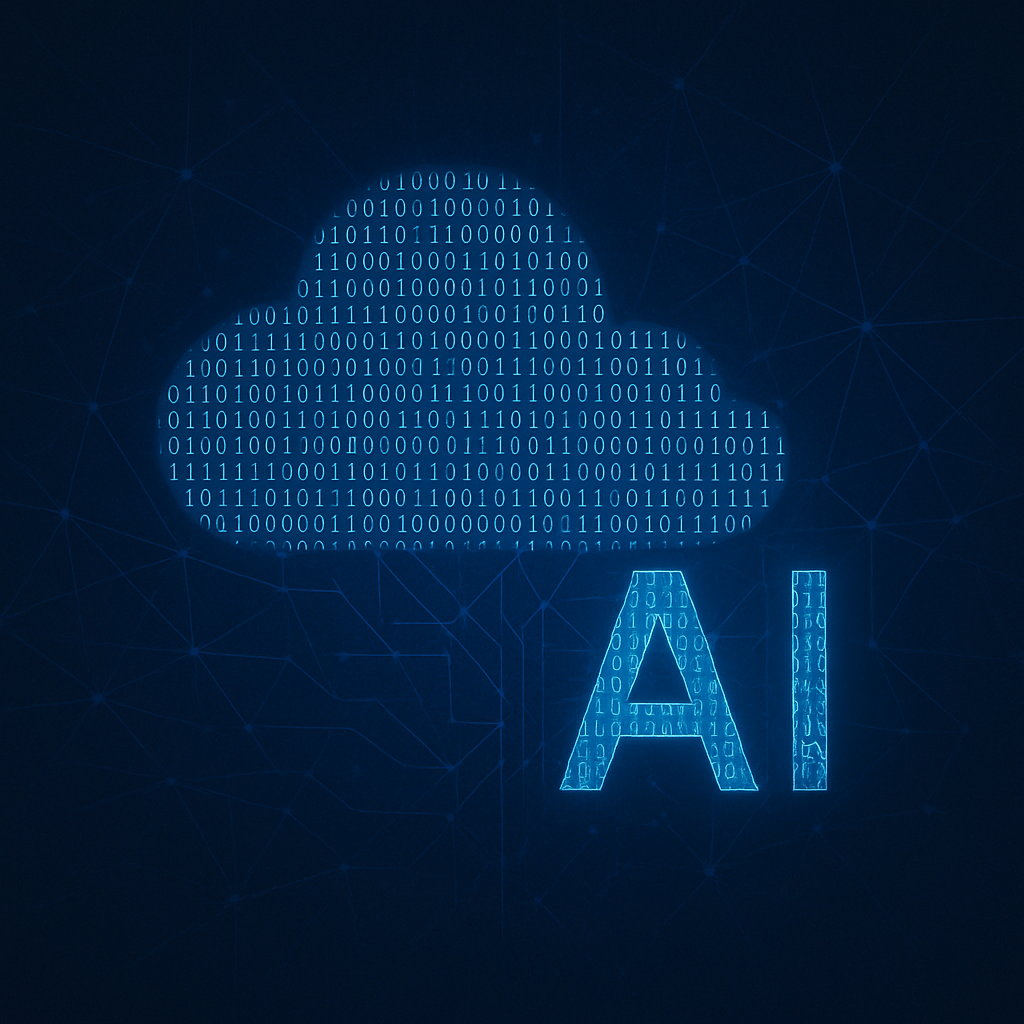
AI: The New Transistor
Just as the transistor revolutionized electronics by enabling miniaturization and mass production, AI is poised to become the new engine of economic growth. The gains won't be concentrated in a few high-tech sectors; instead, they will be widely distributed across the entire economy.
This is because AI agents can automate tasks, augment human capabilities, and unlock new levels of efficiency in virtually every industry.
Consider a small business owner who can leverage AI agents to manage their marketing, customer service, and accounting. Or a researcher who can accelerate their discoveries by using AI to analyze complex data. These are just a few examples of how AI can empower individuals and organizations of all sizes.
What About Humans?
The rise of AI agents inevitably raises questions about the future of the human workforce. While some jobs will undoubtedly be automated, it's important to remember that AI is ultimately a tool designed to augment human capabilities, not replace them entirely. As explored in AI News, the focus should be on adapting skills and education to work alongside AI.
The most successful workers of the future will be those who can:
- Collaborate effectively with AI agents.
- Focus on tasks that require creativity, critical thinking, and emotional intelligence.
- Continuously learn and adapt to new technologies.
The future of work is not about humans vs. machines; it's about humans and machines working together to achieve extraordinary things. As we navigate this transition, it's crucial to embrace the opportunities that AI agents present, while also addressing the challenges and ensuring that the benefits are shared broadly. By understanding AI Fundamentals, we can better prepare for the future.
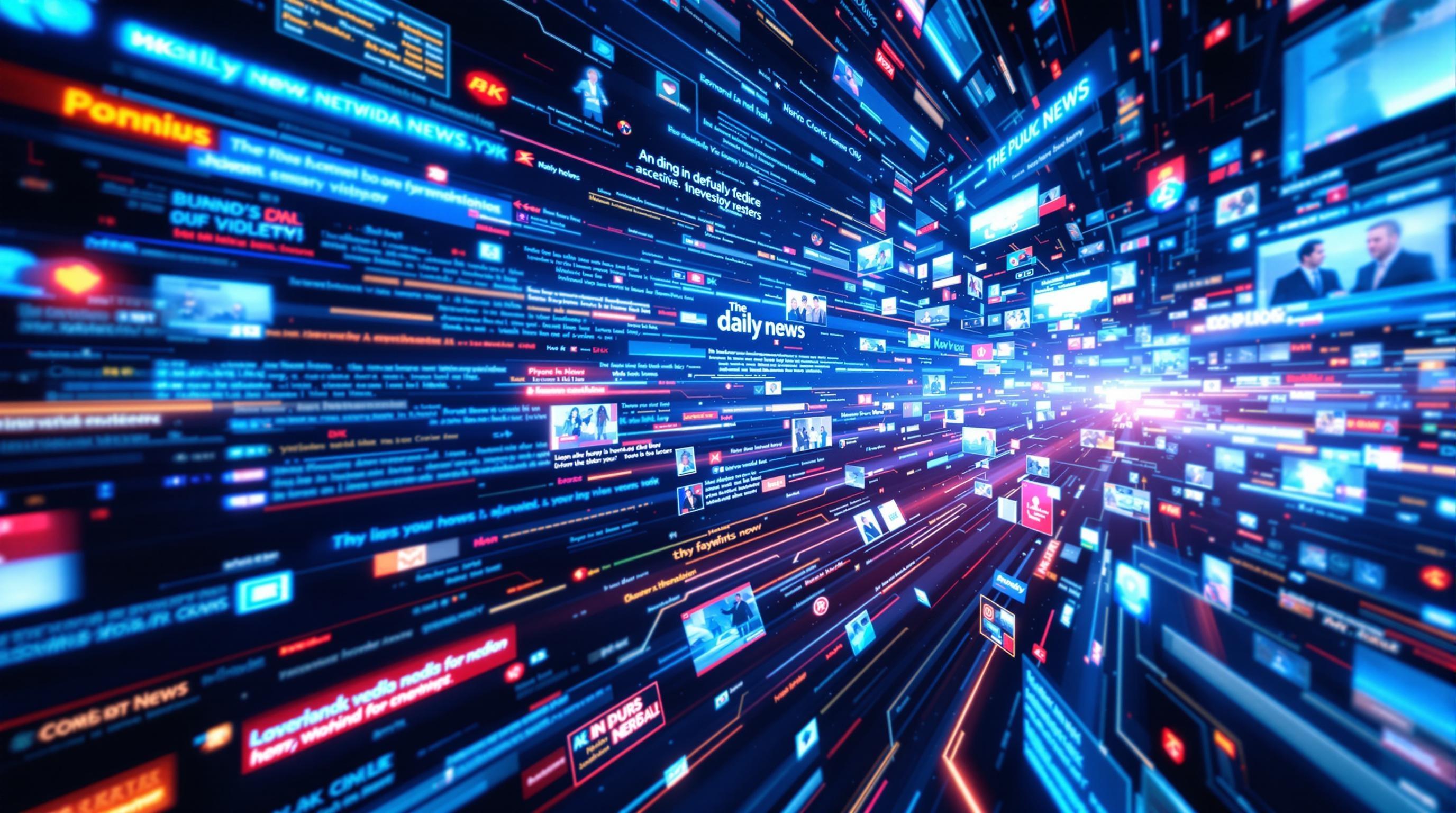
Navigating the AI Revolution: Embracing Change and Cultivating Essential Skills
We're not going to wake up one day and suddenly find ourselves in a world run entirely by robots; the AI revolution is unfolding gradually, weaving its way into the fabric of our lives bit by bit. This means we have the opportunity to adapt, learn, and shape its trajectory.
The Constant Amidst the Change
While AI is poised to reshape industries and redefine jobs, some things will remain fundamentally human. Our relationships, passions, and the simple joys of life aren't going anywhere. Think about it:
- The bonds we share with family and friends will still be the cornerstone of our happiness.
- Hobbies that ignite our creativity and provide an escape will remain vital for our well-being. Perhaps you'll use Leonardo AI, an AI image generation platform that allows you to create stunning art assets, to visualize your hobbies in new ways.
- The pursuit of knowledge and personal growth will continue to enrich our lives. You might find yourself diving deeper into topics that fascinate you, using AI as a tool for exploration and discovery.
It's crucial to remember that technology serves us, not the other way around. We must actively cultivate these enduring aspects of our lives to maintain balance and perspective in a rapidly changing world.
A Glimpse into the Future: Societal and Economic Shifts
Looking ahead, we can anticipate significant societal and economic transformations driven by Artificial Intelligence. These shifts might include:
- New economic models: The rise of the creator economy and the gig economy could accelerate, with AI tools empowering individuals to become entrepreneurs and freelancers.
- Restructured industries: Some industries may shrink or disappear, while others will emerge or expand. Consider how AI is already impacting marketing, with tools like HubSpot Email Writer streamlining content creation.
- A greater emphasis on lifelong learning: The skills needed to thrive in the AI-powered world will constantly evolve, requiring continuous learning and adaptation.
These changes may seem daunting, but they also present unprecedented opportunities for innovation, creativity, and progress.
The Power of Human Agency: Skills for the Future
In a world increasingly shaped by AI, certain human qualities will become even more valuable. These include:
- Agency: The ability to take initiative, make decisions, and act independently. We must be active participants in shaping our own futures, rather than passively accepting whatever comes our way.
- Willfulness: A strong determination to achieve goals and overcome obstacles. This inner drive will be essential for navigating the challenges and uncertainties of the AI revolution.
- Determination: The persistence to pursue goals despite setbacks and difficulties. Success in the age of AI will require resilience and the ability to learn from failures.
- Resilience: The capacity to bounce back from adversity and adapt to changing circumstances. As AI reshapes the world around us, we must be able to cope with stress, embrace change, and maintain a positive outlook.
- Adaptability: The willingness to learn new skills, embrace new technologies, and adjust to new situations. This is perhaps the most critical skill of all, as the AI landscape will continue to evolve at a rapid pace.
AI as an Amplifier of Human Will
Instead of viewing AI as a threat, we should see it as a powerful lever for amplifying human willfulness. By harnessing AI's capabilities, we can:
- Automate mundane tasks: Freeing up our time and energy to focus on more meaningful pursuits.
- Enhance our creativity: AI tools can help us generate new ideas, explore different possibilities, and bring our visions to life. For instance, Canva Magic Studio empowers users to easily create professional-looking designs.
- Solve complex problems: AI can analyze vast amounts of data, identify patterns, and provide insights that would be impossible for humans to discover on their own. Consider WolframAlpha, a computational knowledge engine that can answer complex questions and perform sophisticated calculations.
By embracing AI as a tool for empowerment, we can unlock our full potential and create a future that is both prosperous and fulfilling.
Ultimately, navigating the AI revolution requires a proactive and optimistic mindset. By cultivating essential human skills and embracing AI as a partner, we can shape a future where technology enhances our lives and empowers us to achieve our greatest aspirations. This proactive approach is key as we delve deeper into the ethical implications of AI, which is the next critical consideration.
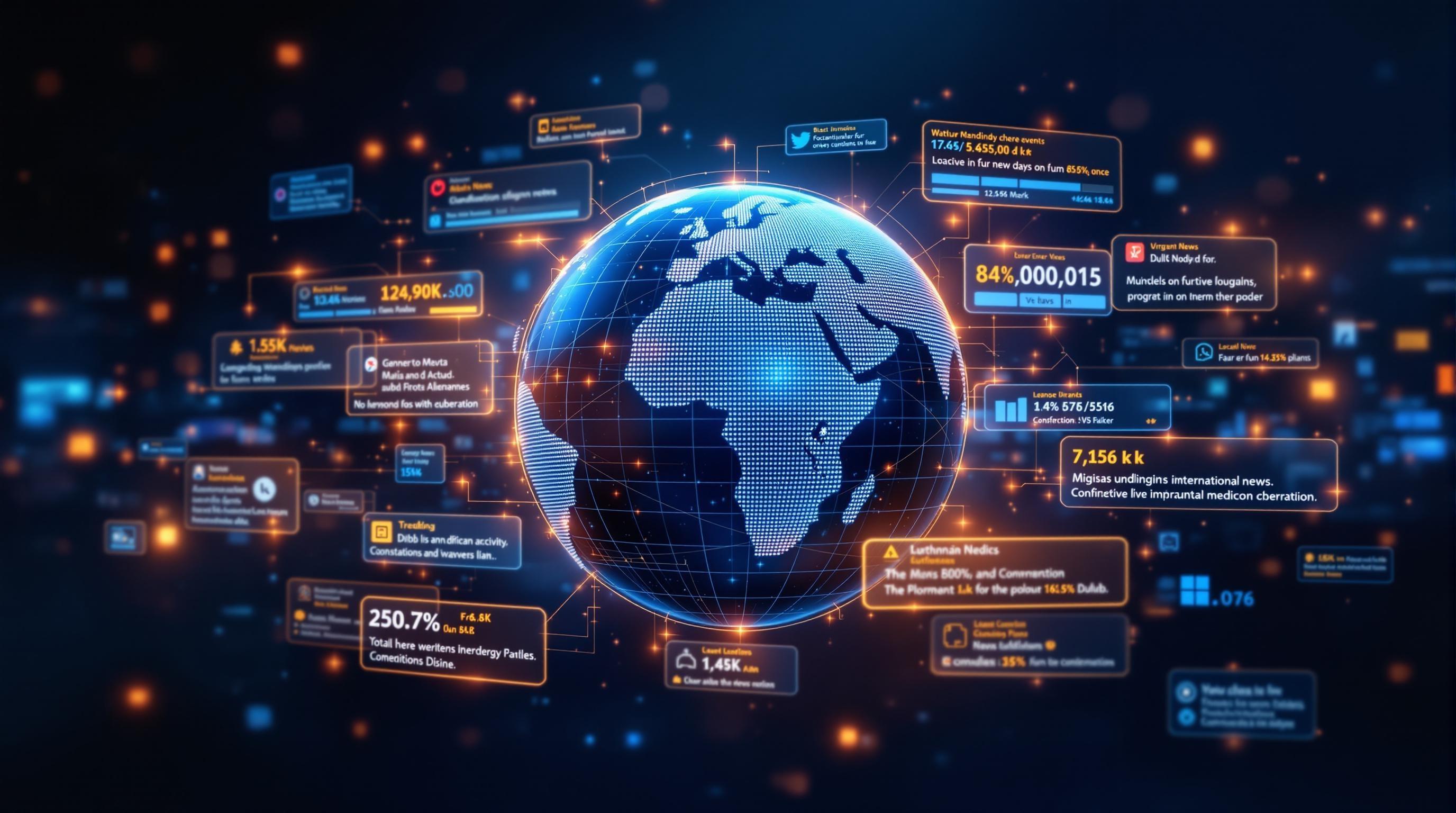
The Broader Impact of AGI: Societal Shifts and the Need for Responsible Development
AGI isn't just another tech upgrade; it's a potential societal earthquake, reshaping industries, economies, and the very fabric of our lives. But like any seismic shift, its impact won't be uniform. Understanding these disparities and preparing for them is paramount.
The Uneven Tides of AGI Adoption
Some sectors will ride the AGI wave to unprecedented heights, while others may find themselves submerged. We're likely to see:
- Booming sectors: Industries reliant on data analysis, complex problem-solving, and automation, like AI research itself, drug discovery, and logistics, will experience exponential growth. Imagine DeepMind's AlphaFold supercharged, rapidly designing novel proteins for medicine and materials science. Or AI-driven logistics optimizing global supply chains in real-time with tools such as Zapier.
- Disrupted sectors: Repetitive, rule-based jobs across manufacturing, customer service, and even some white-collar roles will face displacement as AGI-powered systems take over. It's crucial to consider how we retrain and support workers in these transitioning industries.
- New sectors emerge: Just as the internet spawned entirely new industries, AGI will create novel opportunities we can scarcely imagine today. Think AI ethicists, prompt engineers specializing in human-AGI interaction with skills honed through Prompt Engineering courses, and AGI-driven creative fields.
The Acceleration of Discovery
One of AGI's most profound impacts will be its ability to accelerate scientific progress across all fields. AGI can:
- Analyze vast datasets: Sifting through mountains of research data to identify patterns and insights that humans might miss.
- Generate hypotheses: Formulating novel research questions and experimental designs, pushing the boundaries of current knowledge.
- Automate experimentation: Conducting simulations and physical experiments at a scale and speed previously impossible.
This could lead to breakthroughs in medicine (curing diseases, extending lifespan), materials science (creating stronger, lighter, more sustainable materials), and energy (developing clean, efficient energy sources).

The Price Revolution: Abundance for Some, Scarcity for Others
AGI has the potential to dramatically lower the cost of many goods and services, leading to an era of unprecedented abundance. Imagine:
- AI-designed products: AGI optimizing the design and manufacturing of everything from clothing to electronics, reducing waste and production costs.
- Automated services: AGI-powered robots providing affordable healthcare, education, and elder care to underserved populations.
However, this price revolution might not benefit everyone equally. The cost of luxury goods and limited resources could increase significantly due to:
- Increased demand: As AGI drives economic growth, the demand for rare materials, prime real estate, and exclusive experiences will likely surge.
- Artificial scarcity: Companies might use AGI to create artificial scarcity, manipulating markets and driving up prices for certain goods.
Navigating the AGI Transition: Policy, Safety, and Control
The societal integration of AGI will require careful planning and proactive policies. We need to consider:
- Education and retraining: Investing in programs to help workers adapt to the changing job market and acquire new skills.
- Social safety nets: Providing support for those who are displaced by AGI-driven automation, ensuring a basic standard of living for all.
- Ethical guidelines: Developing clear ethical guidelines for the development and deployment of AGI, preventing bias and ensuring fairness.
- Open Sourcing and Control: Balancing safety and individual empowerment is one of the trickiest challenges we face. If the technology is entirely closed off and controlled by a few large corporations or governments, it could lead to increased inequality and even authoritarian control. By analogy, we can consider projects such as Hugging Face and the push to democratize AI.
Open-sourcing AGI technologies can empower individuals and smaller organizations, fostering innovation and preventing monopolies. However, it also raises concerns about safety and potential misuse.
It is critical to ensure that AGI serves humanity as a whole, not just a select few. AGI can be distributed by:
- Decentralized access: Cloud platforms and APIs allow wide access to AI tools and computing power, such as that offered by Google Cloud AI.
- Democratized Knowledge: Ensuring that educational resources about AI are readily available so individuals can learn to use and shape these technologies.
AGI's potential to reshape our world is immense, but so are the risks. Navigating this transition successfully requires a collective effort – policymakers, researchers, and citizens – to ensure that AGI benefits all of humanity.
Democratizing AGI: Ensuring Equitable Access and Unleashing Human Potential
The true power of Artificial General Intelligence (AGI) won't be realized if its advantages are concentrated in the hands of a few. Democratizing AGI, ensuring its equitable access and distribution, is paramount to unlocking its full potential for humanity.
Spreading the Wealth: Broad Distribution of AGI Benefits
Imagine AGI as a powerful engine of progress. If only a select few control that engine, the benefits will be limited. A truly transformative AGI necessitates a broad distribution of its benefits, impacting all segments of society. This means ensuring that advancements in healthcare, education, and economic opportunity are accessible to everyone, not just the privileged. Think of it like the internet revolution; its transformative power came from its widespread adoption and accessibility.
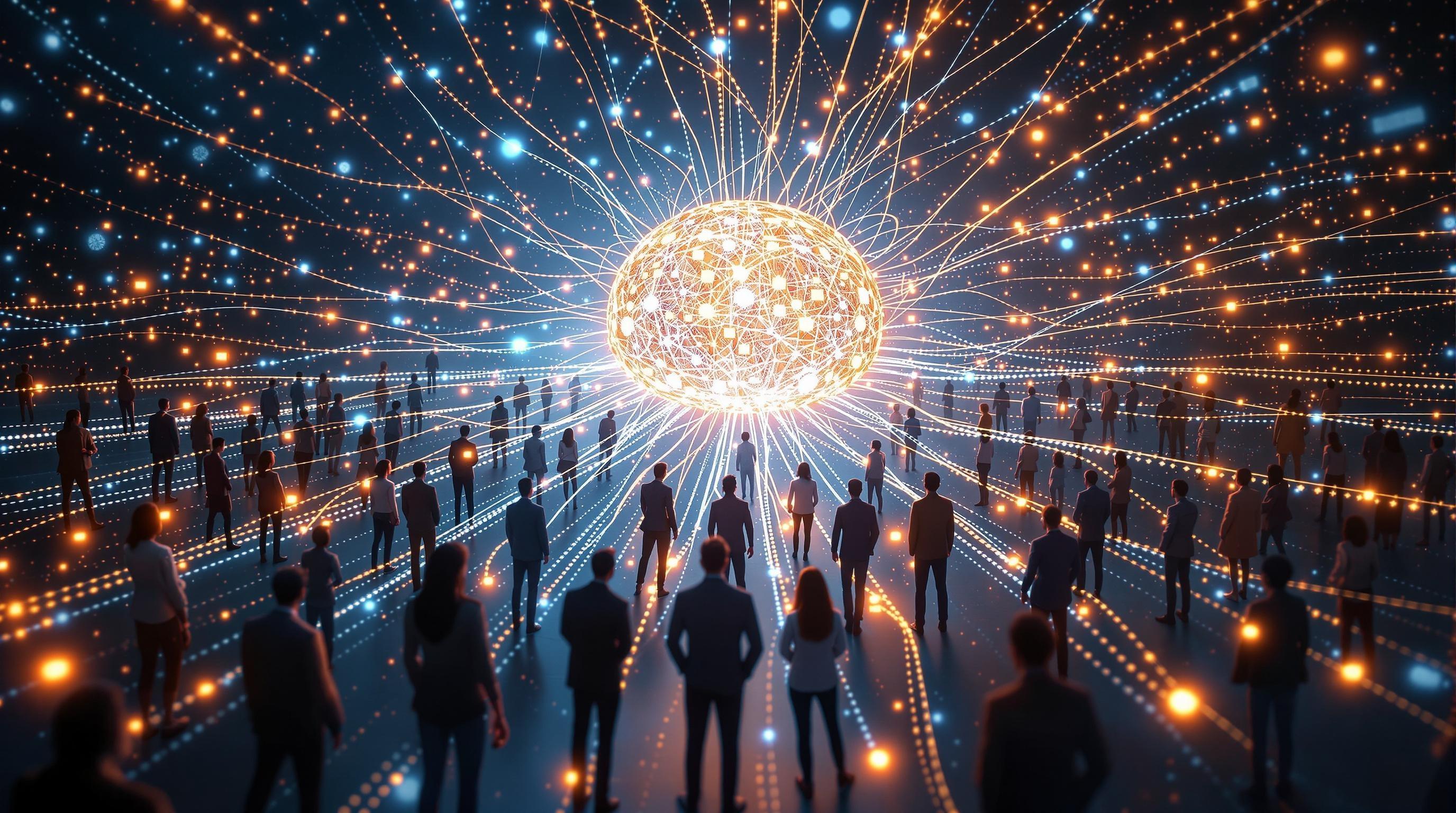
The Capital vs. Labor Equation: Reimagining the Future of Work
One of the most pressing concerns surrounding AGI is the potential for exacerbating the existing imbalance between capital and labor. As AGI takes over routine tasks and even complex decision-making processes, the value of human labor may be diminished, potentially leading to increased unemployment and economic inequality. Addressing this challenge requires proactive measures, such as:
- Universal Basic Income (UBI): Providing a guaranteed minimum income to all citizens, ensuring a safety net in an AGI-driven economy.
- Retraining and Upskilling Programs: Equipping workers with the skills needed to thrive in new roles that complement AGI.
- Redistribution of Wealth: Implementing progressive taxation policies to redistribute the wealth generated by AGI, ensuring that its benefits are shared more equitably.
These measures aim to create a future where AGI empowers individuals, rather than displacing them.
Leveling the Playing Field: Compute Budget Allocation
Access to computing power is becoming increasingly crucial in the age of AI. To ensure fair access to AGI, we might consider innovative approaches like "compute budget allocation." This would involve providing individuals and small businesses with a certain amount of computing resources to leverage AGI for their own projects and initiatives. Imagine it as a digital dividend, empowering individuals to participate in the AGI revolution. This could democratize innovation and foster a more inclusive AI ecosystem. Similar to providing research grants for scientific endeavors, this approach could fuel creativity and problem-solving across diverse fields.
Unleashing Untapped Potential: AGI as an Equalizer
AGI has the potential to unlock the potential of countless individuals who may lack access to traditional resources or opportunities. By providing access to unlimited knowledge, personalized learning experiences, and intelligent tools, AGI can empower individuals to overcome barriers and achieve their full potential. Consider someone with limited access to quality education; AGI could provide them with a personalized tutor, tailored to their individual needs and learning style. This could be transformative, opening doors to new possibilities and empowering them to contribute to society in meaningful ways. You could even leverage tools like Quizlet, which provides AI powered learning tools, to create a personalized learning experience.
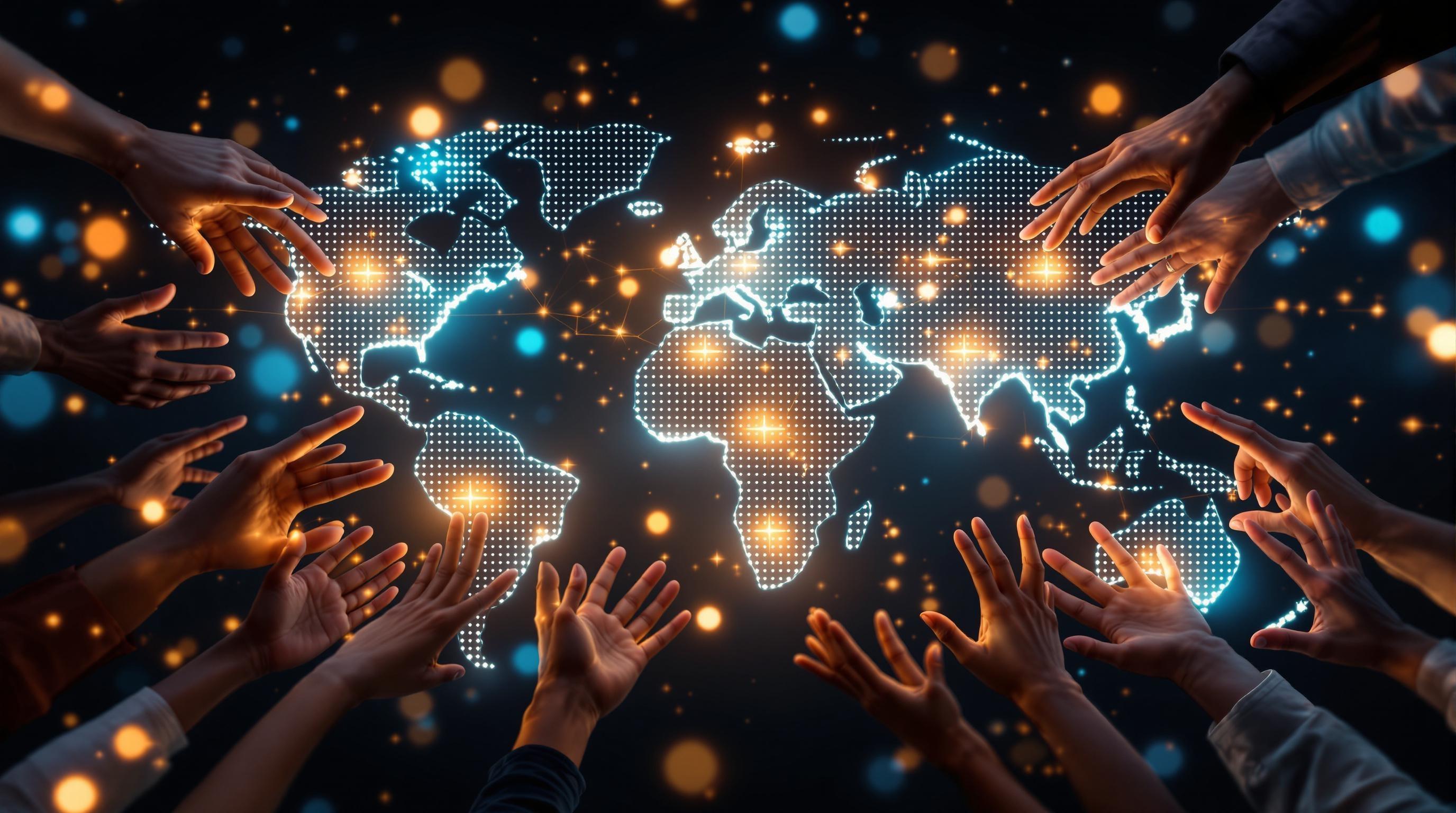
Equal Access: The Bedrock of a Just AGI Future
Ultimately, ensuring equal access to AI resources is the bedrock of a just and equitable AGI future. This means not only providing access to computing power but also ensuring that AI models are trained on diverse datasets and that AI systems are designed to be fair and unbiased. We need to actively work to prevent AGI from perpetuating or amplifying existing inequalities. By prioritizing ethical considerations and promoting inclusivity, we can harness the power of AGI to create a better future for all. Furthermore, understanding the fundamentals of AI, as you can learn from our AI Fundamentals guide, is crucial for everyone to navigate and utilize these technologies effectively.
Democratizing AGI is not just an ethical imperative; it's also a strategic one. By ensuring that AGI benefits all of humanity, we can unlock its full potential and create a future where everyone has the opportunity to thrive. This requires proactive measures, innovative solutions, and a commitment to fairness and inclusivity.
Keywords: AGI, Artificial General Intelligence, AI, AI economics, AI agents, Future of AI, AI development, AI impact on society, AI scaling laws, Cost of AI, AI and economic growth, Individual empowerment, AI safety, Compute budget, AI in software engineering
Hashtags: #AGI #ArtificialIntelligence #FutureofAI #AIRevolution #TechTrends
For more AI insights and tool reviews, visit our website https://best-ai-tools.org, and follow us on our social media channels!
- Website: https://best-ai-tools.org
- X (Twitter): https://x.com/bitautor36935
- Instagram: https://www.instagram.com/bestaitoolsorg
- Reddit: https://www.reddit.com/r/findAIwithAI/
- Telegram: https://t.me/BestAIToolsCommunity
- Medium: https://medium.com/@bitautor.de
- Spotify: https://creators.spotify.com/pod/profile/bestaitools
- Facebook: https://www.facebook.com/profile.php?id=61577063078524
Recommended AI tools
OpenAI Academy
Conversational AI
Empowering the next generation of AI innovators
AI Undresser
Image Generation
Uncover the hidden truth
Credo AI
Data Analytics
The trusted leader in AI governance
Islam & AI
Conversational AI
Bridging Islam and Artificial Intelligence
AI for daily life
Search & Discovery
Discover how AI can make your life easier
Responsible AI Institute
Scientific Research
Empowering Ethical AI
Was this article helpful?
Found outdated info or have suggestions? Let us know!


